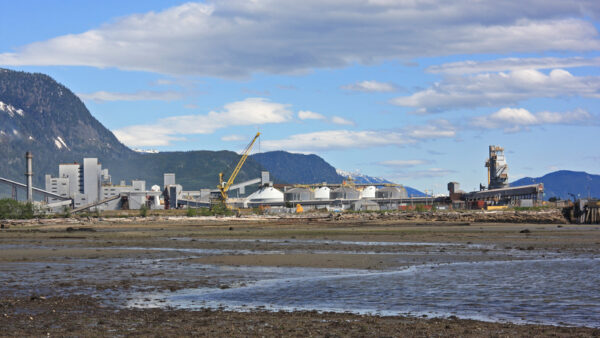The UK government has ended months of uncertainty over the fate of the Wylfa Newydd (“New Wylfa”) nuclear power plant by agreeing to finance the project – contrary to its previous insistence that all new nuclear schemes be privately funded.
Wylfa’s developer Hitachi renewed its commitment to the project, said to have risen in cost to $27bn, after the British government agreed to increase its offer of a $9bn loan to $18bn, report Japanese media.
The UK would also take a $6.6bn direct stake in the scheme, said other reports.
The company has been negotiating with the UK government since April over how much risk it will accept. On 3 May, Hiroaki Nakanishi, the chairman of Hitachi, met with British Prime Minister Theresa May in London.
Last month UK government officials said they “don’t recognise” the reported claims, but yesterday UK business secretary Greg Clark told MPs that the government would indeed be considering direct investment in Wylfa, although he made no mention of figures.
His statement to the Commons was to announce that Hitachi and the UK government had decided to enter into negotiations.
Hitachi is the last firm standing in the scheme following the withdrawal of German utilities E.ON and RWE, US engineer Bechtel and Japan’s JGC Corporation from the Horizon joint venture.
It got cold feet at the prospect of financing Wylfa all by itself, which it regarded as too risky, even for a company with revenues of $89bn in 2017.
In 2010 the Conservative-led coalition government said it would not underwrite the nuclear projects, but as Hitachi had made it clear that it would not take on the scheme without substantial financial guarantees, it was always likely that the UK side would be the first to blink
Other important details have still to be agreed, including the price government will guarantee for the electricity once the scheme is complete.
The spending of public money on Wylfa is likely to be controversial given the government’s underspending on the National Health Service, relative to previous administrations, and the rapidly falling price of renewable power.
If the scheme does go ahead as planned, it will generate about 2.9GW, or 6% of the UK’s electricity needs.
Image: The Wylfa Newydd site in Anglesey (Creative Commons)










